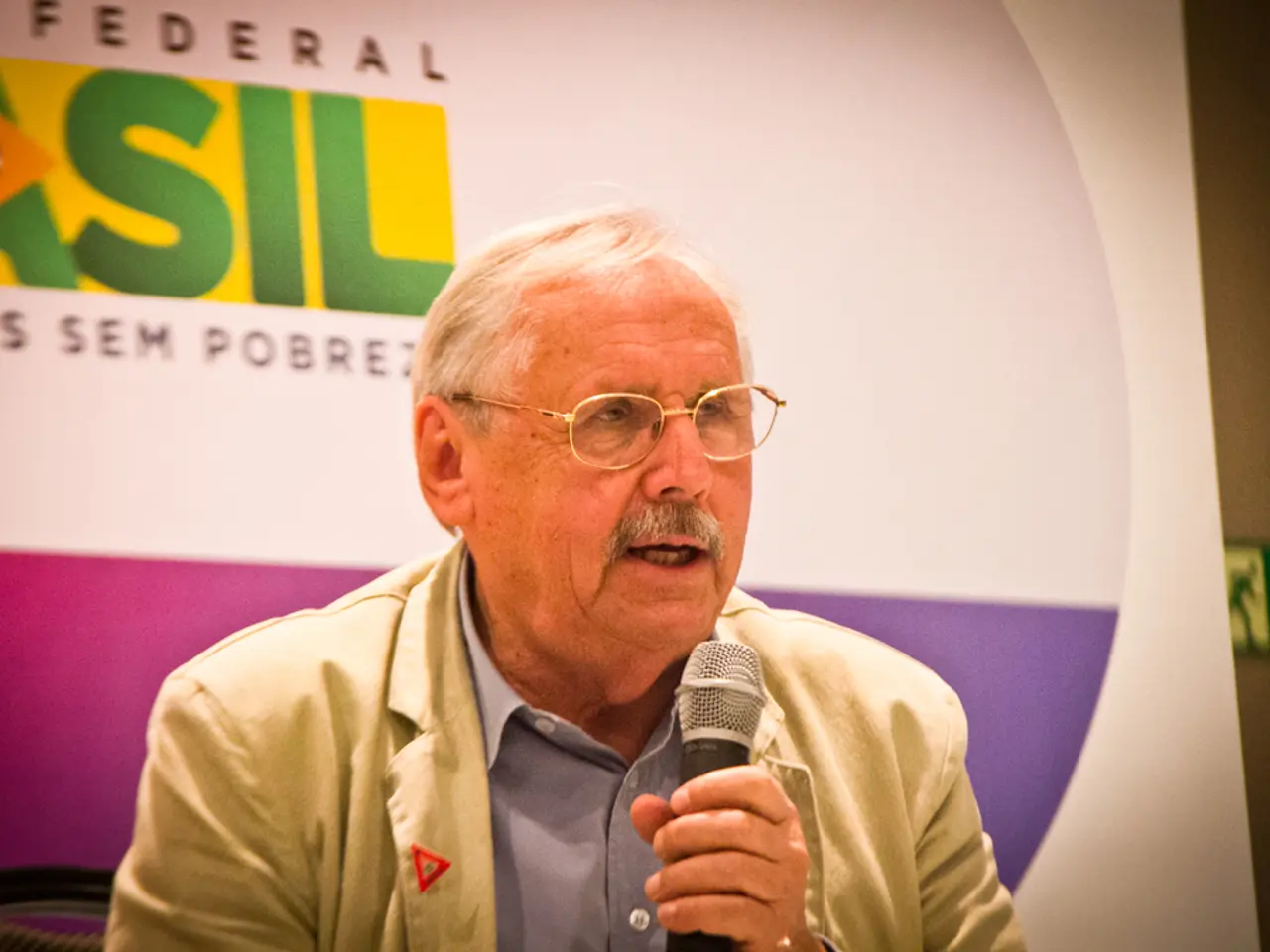Durov, CEO of Telegram, Resists EU Demands for Suppression of Electoral Material Content
In August 2024, a significant event unfolded at Le Bourget Airport in Paris when Pavel Durov, the founder of Telegram, was detained. This arrest, which had repercussions across the tech and crypto sectors, marked the beginning of a contentious standoff between Durov and French authorities.
At the heart of the dispute are allegations that Telegram, the encrypted messaging app co-founded by Durov, has been used to facilitate illegal activities, including the distribution of child exploitation material and drug trafficking. As a result, Durov found himself arrested and indicted in France on twelve counts, including "enabling the distribution of child sexual abuse material" through Telegram.
The core of the clashes revolves around Telegram's moderation policies and platform regulation. French authorities hold Durov accountable for the content disseminated on the platform, a stance that raised concerns about freedom of speech and platform liability globally. The arrest was unprecedented, marking a significant milestone as a technology CEO was held personally responsible for users' illegal activities.
Protests from free-speech advocates ensued, fearing the arrest would encourage over-censorship and moderation on other platforms to avoid similar legal repercussions. In response, Durov has taken public measures to moderate Telegram. For instance, in August 2025, he announced crackdowns on channels involved in doxxing and extortion, emphasizing the platform's effort not to be a place for such abuses.
The conflict between Durov and French authorities reflects broader tensions over how governments seek to regulate global messaging platforms with strong privacy protections, like Telegram’s end-to-end encryption, versus the platforms’ commitments to minimal content moderation and user privacy. The case caused diplomatic strains between France and Russia, with Russian diplomats calling for Durov’s release and expressing dissatisfaction with the French handling of the case.
The debates over digital rights and state oversight are intensifying across Europe. In a notable instance, Rumble CEO Chris Pavlovski left Europe, alleging threats from French authorities. Meanwhile, Durov, known for his resistance to authoritarian demands, including his refusal to comply with Russian government requests to censor dissenting voices, has stood firm against the demands from an unnamed EU country to censor political content on the platform before Romania's presidential elections.
Telegram will not restrict the freedoms of Romanian users or block their political channels. Durov has stated that one cannot "defend democracy" by destroying democracy and that you can't "fight election interference" by interfering with elections. The French government's actions were described as a coercive effort to pressure Telegram founder Pavel Durov into censoring content.
The ongoing standoff between Durov and authorities emphasizes the growing friction between tech platforms advocating free expression and governments seeking greater control. As the case continues to unfold, it serves as a reminder of the complex interplay between technology, free speech, and regulation in the digital age.
[1] Source: The Shib Magazine and The Shib Daily, official media and publications of the Shiba Inu cryptocurrency project. [3] Source: Various news outlets reporting on the arrest and subsequent legal proceedings. [4] Source: Statements and announcements made by Pavel Durov and Telegram officials.
Read also:
- Sony Digital Camera RX100 VII Examination
- Ford Discontinues Popular Top-Seller in Staggering Shift, Labeled as a "Model T Event"
- 2025 Witnesses a 27% Surge in Worldwide Electric Vehicle Sales, Despite Opposition to Electrification Policies in the U.S.
- Dubai-bound: Omega Seiki Mobility, an electric vehicle company from India, prepares for assembly establishment




